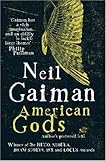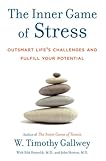“Welcome to the Naperville DMV! What can we do for you today?” startled by this man’s joviality, my initial response was fear. Since when did the Naperville DMV gain the customer service sense of a wall-mart cart greeter? “I’d like to get my license renewed.”
“Okey-dokey, just head on over to the second line on your right.” As I walked over to the second line on the right, I could hear his voice exclaiming again, “Welcome to the Naperville DMV! What can we do for you today?” In my line, second on the right, I could see a man elevated on a bar stool of sorts, checking peoples’ paperwork and giving them a numbered ticket for waiting in the “waiting area”. Clearly patrons of the DMV had proved themselves ineffective at choosing the correct service desired and having the correct paperwork to gain it. We were being guided as sheep at every step of the way.
“I’d like to renew my license.” “Do you have your license here?” “Yes,” I answered handing the nice man my license. “Ok.” He handed me a number and I sat down. The waiting area was crowded with plastic chairs that had been wired together to prevent movement. I could imagine that this perhaps wasn’t a preventative measure and that before the wire someone had tried to create a space for two to talk or a circle pow-wow of friends all celebrating license renewal, driving tests, the rules of the road, or title transfer. “We must wire the chairs together. We must guide these idiots to their places. We must not let them choose their service without checking that they have the right documents. We cannot give them an iota of control or they will take it, abuse it, and cause a kink in the works.”
In fact, this sentiment is correct. I observed many people being sent home for having improper documentation, many people with questions about this and that, I observed a human universal anywhere in the world – bureaucracy is confusing. I sat down in between two people. Another element of human nature, no one wants to sit right next to a person they don’t know. If they have a choice they sit in the aisle seat for a fast getaway. Indeed, this DMV, the picture of bureaucratic efficiency, even had a seating harasser, who continuously wandered the room telling people, “Please, take a seat in the waiting area and keep these aisles clear for emergencies”.
What emergencies might befall us at the DMV?
In my seat, I realized I had left any reading material at home. So, I disrupted the people in my row once more and went to the ticket-giver, paperwork-checker, supreme-director man and enquired about he possibility of grabbing a “Rules of the Road” book. “You don’t need that for license renewal,” he responded. I am so memorable. “I was just looking for something to read while I wait.” “I can’t give you one, we have only a couple in English, can you speak Polish or Spanish?” So, I took the Polish one and sat down in a different seat, having disrupted my former partners enough. This time, I was sitting in the very front of the waiting room, in between an old lady and a young girl who was chatting on her cell.
The young girl was blathering on and on to different people about how terrible it was that she was waiting at the DMV. When she had finished one call of complaint, she called another person and began complaining again. I found this insipid banter relaxing and a bit annoying. I hope you fail your test, I thought to myself. She was saying for the eighth time, “It’s like, I have like, so many like things to like do today and I am like in the B group and they like never like call the B group like. Like do you know what I mean like?” Her stress wasn’t becoming my stress, I have a strange human trait that in the face of another person’s anxiety, I become more and more calm. I entered my zen state of waiting, which I have perfected from 5 years experience as a ex-pat in the former communist, Slovak Republic. If you want paperwork, I’ll show you my folders of translated notarized birth certificates, criminal records from the US and from Slovakia, even from the Czech Republic because they hold former pre-90’s records, miles of affidavits from the US embassy – one declaring that I speak English, permission from landlords and employers, letters from the Ministry of Interior, a total of 5 residence visas, one business license and a car title. I am incapable of impatience.
The old lady to my right was also waiting patiently, in her pretty pink suit, a silk scarf expertly tied around her neck, hair set to small curls and a cane resting against her leg and the chair. She looked straight ahead. I wondered what she was thinking. I imagined her behind the wheel of a big boat of a car, driving slowly, sitting on a pillow, frightening all those fellow drivers on the road.
I remember my grandmother, who wouldn’t give up driving. Every week she would come to our house with more nicks and dents in her car. I didn’t know what she was doing, if she had managed to park right next to the cart return on her daily trips to the grocery store and hooligans had marred her blue Cadillac wheeling themselves around haphazardly in carts. I can only imagine the path of destruction she left in her wake. My dad would ask, “Hey, Mom, do you know how this happened?” She would answer, “Would you like weenies in your spaghetti O’s?” Being hard of hearing gave her the right not to hear what she didn’t want to.
This old lady reminded me so much of my Mana that I watched her as she walked slowly and carefully to the counter when her number was called. She seemed afraid at that point, her poise compromised in the face of a DMV official and an eye exam. At this DMV the waiting area ends where a long bar of cold gray begins – the frontline of DMV activity. Sitting in increments of very little discretion are about 10 of these officers. As I had already been there for about an hour, I was very surprised by their friendliness.
When my old lady approached the counter and handed her official her paper work, he asked her to take an eye-test. She went to put her face in the contraption and failed because she was too short. She tried several times. The official gave her pieces of advice and she kept saying, “I can’t see anything”. Instead of treating her with impatience and disdain, the man behind the counter was very compassionate. He seemed to know that this was important to her, that driving wasn’t just about getting from here to there, it was about independence and self-sufficiency. That somewhere, they both knew if her license were taken away, it would mean the beginning of difficulties for her family, for her sense of well-being and autonomy. It was so much more than a plastic card with a picture on it.
He took her to a different machine that went lower and attempted to see the letters and the dots testing her peripheral vision. Later, when I had my chance at the same test, I felt the pressure on my forehead, which activated the light, in addition to the pressure on my psyche. At first, the letters blurred and crossed, like looking through binoculars and seeing double for a moment. I thought to myself, oh no, I was always 20-20, what is happening? I even had a re-start. This was no easy eye-test.
I lost track of the old lady and her dazzling pink suit. I went through a different line where I paid my 20 usd and then went to the second waiting area where your picture was taken and you, when successful, were granted a little plastic card, proclaiming you fit to drive. I was sitting in the chair and having my picture taken, when I saw the little old lady being guided in with the help of the welcoming man to the picture waiting area. She had a big smile on her face. She had won and beat the test for another couple of years. I have the best driver’s license picture I have ever had. In it, I am really smiling a smile of heartfelt gladness and it wasn’t for me. It was for this little old lady in the perfect pink suit.
 A Walk in the Woods: Rediscovering America on the Appalachian Trail by Bill Bryson
A Walk in the Woods: Rediscovering America on the Appalachian Trail by Bill Bryson










